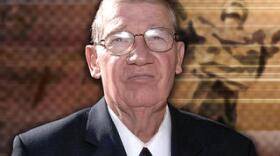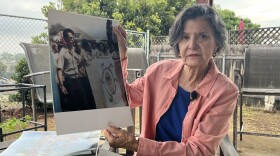Four years after its revolution sparked the broader Arab Spring, Tunisians headed to the polls on Sunday to pick their next head of state.
The Los Angeles Times reports:
"With more than two dozen candidates contesting the presidency and more than 50% of the vote required for an outright win, the race was considered likely to go to a runoff next month."The front-runner is Beji Caid Essebsi, 87, whose faction garnered the largest share of seats in last month's parliamentary vote, but he faces a strong challenge from interim President Moncef Marzouki, who was a well-known human rights campaigner. "Essebsi has ties to the previous regime toppled nearly four years ago in the North African nation's revolt against strongman Zine El Abidine Ben Ali..."
The BBC reports that Prime Minister Mehdi Jomaa said Tunisia was the first during the Arab Spring to topple a long-time dictator and it will be the first to make a transition to democratically electing its leaders.
The New York Times points out that one of the big features of this election cycle is that the Islamic party, Ennahda, is not fielding a candidate. That has led to some worry because Essebsi's party already controls the legislature. So a win, the worried say, may give him too much power.
The Times adds:
"It was the first thing Mr. Essebsi addressed at a big rally in the capital last weekend, emphasizing his readiness to share power.
"'We will try to work with other political parties because this is a sensitive period during which we need to show national unity,' he told supporters. 'The Tunisian nation is a great and smart people, and it gave us a clear message saying that we should govern, but with help.'"






